I am trying to create and use a dynamic variable in Python for the first time.
for i in range(0,len(test_data)):
globals()["test_list_{}".format(test_data[i])]=[]
globals()["test_calculation_{}".format(test_data[i])]=0
First, I created test_list_number and test_calculation_number as global variables.
Then I want to use this in for and use it for calculations. The code I wrote here was made by simplifying the code I'm going to use.
How do I change the numbers in the two for statements below?
--------------Below is a code example. -------------
import pandas as pd
import numpy as np
X=list(np.random.random(100)*100)
Y=list(np.random.random(100)*100)
test_data= [2,5,7,8]
test_dict={(i,j):np.hypot(X[i]-X[j],Y[i]-Y[j]) for i in range(0,100) for j in range(0,100)}
test_df_data2={
'index' : [1,2,3],
'data1' : [3,5,6],
'data2' : [2,5,6]
}
test_df_data5={
'index' : [1,2,3],
'data1' : [8,3,1],
'data2' : [3,2,7]
}
test_df_2 =pd.DataFrame(test_df_data2)
test_df_5 =pd.DataFrame(test_df_data5)
for i in range(0,len(test_data)):
globals()["test_list_{}".format(test_data[i])]=[]
globals()["test_calculation_{}".format(test_data[i])]=0
for i in range(0, len(test_df_2 ) ):
test_list_2 .append((test_df_2 .data1[i],test_df_2 .data2 [i]))
for i in range(len(test_list_2 )):
test_calculation_2 = test_calculation_2 + test_dict[test_list_2 [i] ]
print( test_calculation_2)
